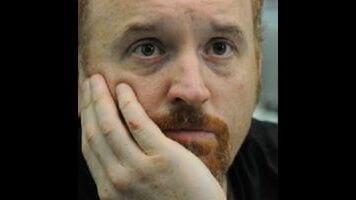During his WTF With Marc Maron, Dane Cook alternately came off like a relatively decent guy who had been the unwitting victim of bad press and a super-villain whose arrogance and megalomania knows no bounds. At his deluded worst, Cook actually accuses a fellow stand-up comedian of trying to “steal his essence.”
Within the context of the podcast, the comment makes sense: Cook has a high-energy, extremely physical, aggressive, super-cocky style that would be fairly easy to reproduce though it’s telling that no one else has had substantial commercial success with Cook’s signature style. At the same time, the comment is utterly laughable; you can't steal someone’s essence any more than you can borrow their charisma or lease their mojo.
Yet the “essence” comment plays into the public perception of Dane Cook as the closest thing comedy has to Richard Nixon: a deluded, paranoid lunatic who sees enemies everywhere despite, or rather because, of his incredible power and success. On some level, struggling comedians need Cook. They need Cook because he makes for such a spectacular villain. They need Cook's smug frat boy grin to adorn their dartboards.
Cook is everything a comedian isn’t supposed to be: sober, handsome, cocky, focused, insanely ambitious and seemingly devoid of self-destructive impulses. We need to believe on some level that Cook is every bit the monster his reputation suggests. As Maron quipped on the podcast, we like to imagine Cook as little lord Fauntleroy, waving around a scepter and wearing a crown.
We need Dane Cook as a villain just as we need Louis CK as a hero. The long-simmering Cold War that is Dane Cook versus Louis CK (a subset of previous skirmishes such as Dane Cook versus the world and Dane Cook versus comedy) exploded tonight in the second short film of "Oh Louie/Tickets."
In it, CK buys his daughter tickets to a hot new dance act for her birthday. She struggles to hide her disappointment but she is a child and consequently emotional transparent so it soon comes out that what she really wants are tickets to Lady Gaga. Louis CK’s apparently twelve-year-old booking agent (another smart example of the show’s penchant for casual surrealism) has good news and bad news on that front. Lady Gaga’s booking company represents exactly one comedian. Unfortunately it’s Dane Cook.
Nevertheless CK swallows his pride and gets tickets backstage to receive the comedy equivalent of a royal audience with Cook before he performs live at the Madison Square Garden. But first he must go through a security detail for Cook worthy of a President. Even for a man hated by so many, the security seemed a bit excessive.
Cook greets CK with a glower. Cook is notorious for having pilfered some of CK’s bits in real life but his attitude towards CK is less abashed and guilty than enraged and aggressive. In Cook’s estimation, he’s the wronged party. In a brilliantly delivered rant, Cook talks about how 2006 should have been the greatest year of any comedian in the history of the universe. Cook released a double platinum album. He sold out stadiums. He was on the fucking cover of Time. Yet he couldn’t really enjoy it thanks to the widespread perception that he was a hack who had stolen material from CK, a comic’s comic lingering in semi-obscurity while his material powered Cook’s ascent to super-stardom.
Cook delivers the speech with boundless rage. He’s been waiting to make that speech for four years so he is intent on making the most of it. In performance and on the show, CK and Cook are a study in contrasts. Cook is all about aggression. CK is inherently passive. That's what makes him such a gifted reactor as an actor.
Cook holds CK against the wall for doing nothing to counter the public perception of Cook as a joke thief. Oh sure, CK never publicly accused Cook of thievery but he didn’t exactly go around defending Cook either. CK and Cook’s very public history together lends this encounter an exhilarating transgressive charge: it’s unclear how much of what we’re seeing is born of genuine real-life emotion and how much is brilliant television. That’s part of what makes it so compelling but the sequence is riveting as well thanks to the way Cook almost but never quite loses his temper and explodes with the rage that has been building up for years. As Mr. Brooks illustrated, Dane Cook can be a really fascinating character actor when he’s playing narcissistic assholes. Consequently his performance here as Dane Cook was very much in his wheelhouse.
“Oh Louie/Tickets” was rife with meta-textual trickery. The episode opened with a flashback of Louie trying and failing to come to terms with the compromises and concessions incumbent in having your television sitcom while he was in the process of actually taping said show (a three-camera sitcom that bears only a vague resemblance to "Lucky Louie") for a studio audience. In a moment of clarity, CK sees through the artifice and the lies of everything around him and quits in a huff, reconciling himself to a life of struggling to get by in the process.
“Oh Louie/Tickets” is a curiously lopsided episode but both sides ultimately concern the existential condition of the comedian as a man who tries to speak truth in a crazy, uncertain and often unfair world that has a way of making that noble calling unnecessarily, almost unbelievably hard.









































